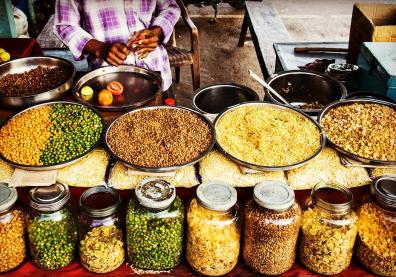ICHD - Migration

The "Intangible Cultural Heritage" (ICH) defined by UNESCO in October 2003 recorded eating habits and culinary practices for the first time in 2010. France was the first to register its "gastronomic meal", followed by other countries such as Japan, Greece, Italy, Kenya, Senegal and, more recently, Peru and Lebanon. To date, 18 countries and 5 regions have had their culinary and food heritage registered with UNESCO.
Cooking and food are deeply rooted in cultural identities. The same dish or the same ingredient can be prepared differently from one country to another, from one region to another or from one community to another, and characterize the space and the human communities in which they are made. So when human groups move to new territories, they take their recipes, cooking techniques and eating habits with them, adapting them to their new environment. This process generates cultural exchanges between populations and contributes to the diversification and enrichment of the local culinary landscape at different levels of society. During this round table, our speakers will look back at the different strategies put in place by communities and populations in a migration context to assert their culinary capital in foreign territory.
Moderator: Sophie Hohmann, PhD in social sciences at EHESS, lecturer in the Eurasia department at Inalco
Interventions:
- Françoise Robin, university professor at Inalco, South Asia and Himalayas department
- Daniel Ortiz, anthropology researcher and audiovisual production manager at the association Île du Monde, and Carlo Barletta, head of the Ile des savoirs and rencontre cuisine project
- Harouna Sow, chef at the Waalo restaurant and trainer at Refugee Food